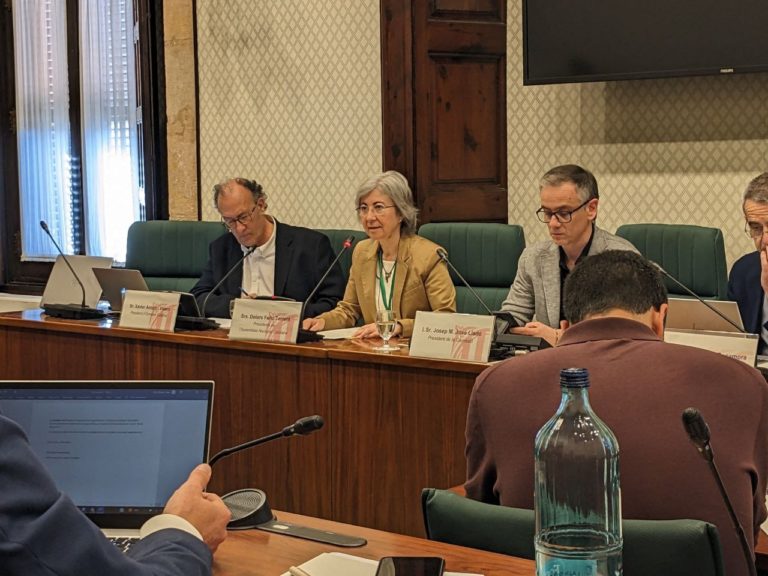
Assemblea’s President Dolors Feliu denounced that six members of the organization are victims of the Catalangate espionage for their pro-independence activism, and recalled the repeated failure of the dialogue table with the Spanish government to stop rights violations including cyber espionage
On Friday morning, the president of the Catalan National Assembly, Dolors Feliu, appeared as a witness before the Parliament of Catalonia’s Committee of Inquiry which is looking into the Catalangate case, the massive illegal espionage on political representatives, activists, journalists, and their families by the Spanish State with spyware.
At the beginning of her testimony, Dolors Feliu thanked the commission for the invitation and expressed that “the illegitimate espionage against members of civil society and other actors of the Catalan independence movement is a flagrant abuse of fundamental rights, which deserves a thorough investigation to clarify the facts and clear responsibilities.”
Ms Feliu recalled that even though the Catalan National Assembly follows “the principles of democratic activism and non-violence, this did not prevent at least six people from our organization from being spied on, apparently mostly without judicial authorization.” These infections have been confirmed by three organizations and three different methods: Citizens Lab, Amnesty International and Evidentia, the latter delivered as evidence to the court addressing Assemblea’s lawsuit.
The president remarked that the organisation did not stand idly by in the face of this attack and filed a lawsuit for the abuse of the right to privacy and assembly against the Kingdom of Spain, and started an international campaign to denounce the #Catalangate scandal in collaboration with other civil rights organisations and Catalan political parties that are also victims of espionage.
The Catalan National Assembly brought the issue before the UN, denouncing it in a letter that led to a communiqué in response from three Special Rapporteurs that recognised rights abuses, and also before the European Parliament. Spanish MEPs aggressively obstructed the investigation of the case by the European Committee of Inquiry into Pegasus, at whose meetings there was a clear lack of representation from the Catalan civil society.
Dolors Feliu highlighted that “national security cannot be invoked as a pretext to eliminate transparency and accountability, nor can it be used as carte blanche to justify fundamental rights abuses of Catalan citizens”. Feliu warned of the Spanish state’s current narrative to falsely associate the Catalan independence movement with terrorism, as became clear with a recent indictment on activists, to normalize and legitimize massive espionage against the movement.
Finally, Dolors Feliu called for a joint front and a joint plan to deal with Spain’s abuses of power against the Catalan independence movement, and recommended the creation of a fund to deal with the expenses arising from the investigation on the phones of potential victims, as well as the lawsuits related to espionage, and providing the victims with legal defence and technical and psychological assistance to prevent them from being left without resources and protection.
The Parliament of Catalonia’s Committee of Inquiry invited the Catalan National Assembly and Òmnium Cultural as witnesses because members of both organisations have been spied on by the Spanish State, purely for their pro-independence activism. Even those who had allegedly been spied on with a court order have never received any official communication, and they only found out about it from leaks in the press.